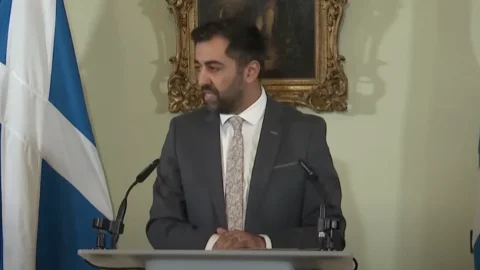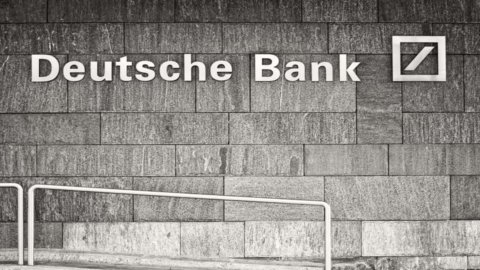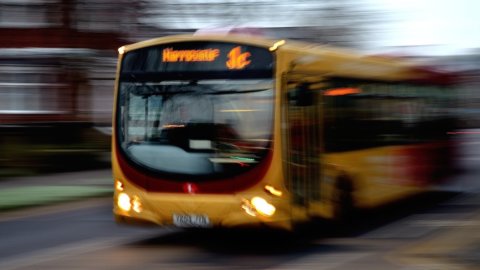Vladimir Putin is ready to send the army to the Crimea. The Russian President has requested and obtained parliamentary clearance, but the final decision has not yet arrived. Moscow plays on the thread of tension and concern of the international community, increasingly high, for the tug of war in progress with Ukraine. Through his spokesman Dmitri Peskov, Putin expresses "the hope that Kiev will put an end to the escalation", suggesting that it will not go beyond the probable point of no return if the new Ukrainian authorities come down to more lenient advice.
The Federation Council itself, which authorized the sending of troops to Crimea, is asking that "diplomatic action be undertaken with respect to the political structures in Kiev, so as to bring the situation back within the constitutional framework". An appeal above all to the EU, which will urgently meet its foreign ministers on Monday to decide what to do. Moreover, the crisis is spreading to eastern Ukraine and this too is a source of growing alarm. The Russian senators also called for the Russian ambassador to be recalled from Washington: Putin is stalling for time on this too.
In a 90-minute phone call, Putin told US President Barack Obama that "Moscow reserves the right to protect its interests and the interests of the Russians if there is violence in Crimea and eastern Ukraine". A note from the Kremlin reveals it. Instead, the White House has announced that Obama told Putin that the United States "condemn the Russian military intervention in Ukrainian territory" and also invite Russia to reduce tension "by withdrawing its armed forces and returning them to bases in Crimea so as to stop any interference from them anywhere else within the Ukraine”.
The US president added that “the United States will not participate in the forthcoming preparatory meetings for the G8. These continuous violations by Russia of international law – argues Obama – will lead to greater political and economic isolation of Moscow”. The head of EU foreign policy, Catherine Ashton, has also asked Russia to respect international treaties and to refrain from armed intervention in Ukraine. But the Ukrainian ambassador to the UN Yuriy Sergeyev, quoted by CNN, denounces that "fifteen thousand Russian soldiers are already in Crimea".
The region, with the support of Moscow, seems to have decided to take its own path, opposite to the pro-European one taken by the new Ukrainian premier Arseni Yatseniuk and the interim president Olexandr Turchynov. With the flight of Viktor Yanukovych and the establishment in Kiev of a power block that the Kremlin considers anti-Russian, the situation has accelerated sharply, centered on the peninsula, where powers have been assumed by the new governor Serghei Aksyonov, who called a referendum on the status of the region for 30 March. The risk of secession of Crimea, which has been part of Ukraine since 1954 and has a large Russian majority, appears more real than ever, considering that the authorities in Simferopol have explicitly asked for Russia's help.
From Kiev, Yatseniuk and Turchynov, who have declared that they do not recognize Aksyonov, have accused the Kremlin of wanting to destabilize Ukraine, speaking of aggression against sovereignty. However, in various cities of the country, in the eastern and southern regions closest to Russia, there were demonstrations in favor of Moscow.
After three months with western Ukraine in turmoil, with palaces of power stormed and belligerent statements by ultranationalists both towards then-President Yanukovych and towards Russia, the international community is now faced with a degeneration of crisis in the east and south of the country, where the regime change in Kiev has aroused opposite reactions to those in the West. Pravyi Sektor, the hard-line of the Maidan protests - who gave Viktor Yanukovych an ultimatum last Friday, despite the fact that the agreement for a shared exit from the crisis had been signed between the former president and the then opposition - today he called on all his units to mobilize armed for the defense of national sovereignty and "the destruction of the Russian empire".
The "Right Sector" brings together various extremist and paramilitary movements, which according to information from the German weekly Der Spiegel have already formed alliances with the radical elements of the Tatar minority in Crimea to carry out attacks against Russian targets.
The National Security Council was urgently convened in Kiev led by the newly appointed president Andrei Parubyi, former commander of the Maidan, pro-government close to Yatseniuk and Yulia Tymoshenko, but with a recent past alongside the nationalist Oleg Tihanybok as founder of the Party Ukrainian social-nationalist (later renamed Svoboda). While on Sunday the parliament will meet in an extraordinary session, after the meeting of the United Nations Security Council, where Russia has the same veto right as the other members. Then, on Monday, the foreign ministers of the European Union will discuss the emergency that from Crimea risks infecting the other Russian-speaking regions of Ukraine.





